Kosovo and Serbia – Will we finally see reconciliation?
- Drita Sylejmani

- Jun 15, 2021
- 5 min read
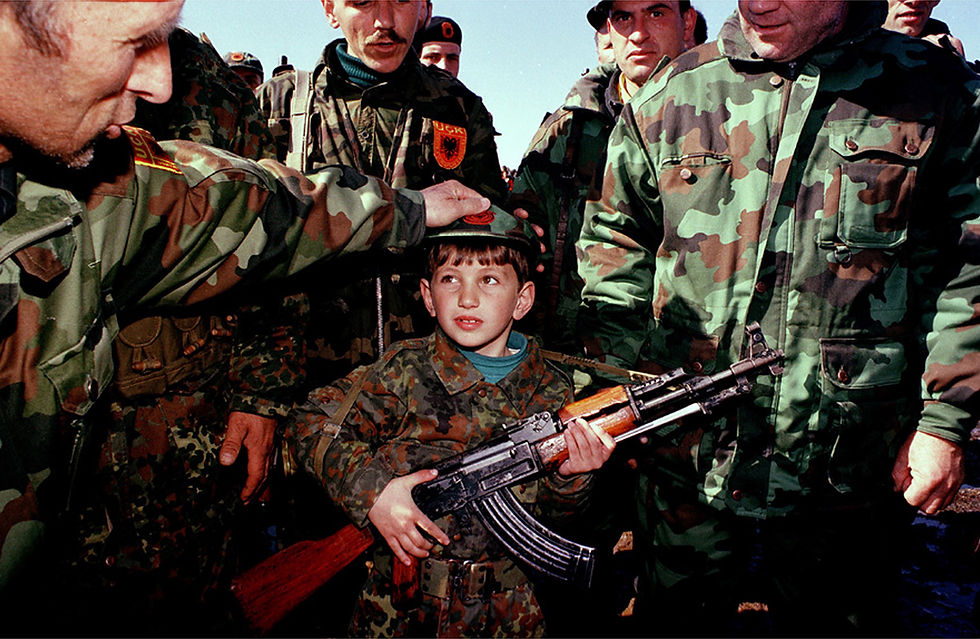
Kosovo was a province under the former Federation of Yugoslavia right until its collapse in the late 90s. The majority of inhabitants in Kosovo have always been ethnic Albanians. The rise of nationalism, especially in Serbia after Slobodan Milosevic came to power in 1989, escalated the tensions between Albanians and Serbs in Kosovo. This was most visible after the abolishment of the aim of autonomy of Kosovo within the Socialist Federal Republic of Yugoslavia by the Serbian 1989 constitution. Later, Kosovo became a de-facto colony of Serbia, with a population composed of a majority of ethnic Albanians and a 10% Serbian minority. Pursuing sovereignty, Kosovar Albanians formed parallel national institutions, in hopes that the international community would reinforce their ideas and recompense their peaceful resistance towards the oppression (Friedrich 2005, 229-231). However, the international community failed to react or establish any work plan for conflict prevention, thus it only showed capabilities on the management of the already escalated conflict rather than offering any justifiable solution. (Demjaha 2000, 32-44). As a consequence of international ignorance towards the conflict in Kosovo, Kosovo’s Liberation Army (KLA) emerged. This deepened the conflict. Regardless, the difference between the KLA and Serbian police forces was incomparable, considering the fact that the KLA had mostly primitive weapons.
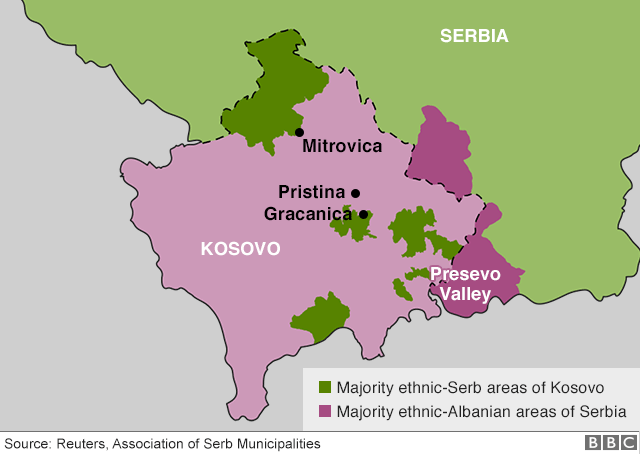
Gross human rights violations took place, including violations of laws on war, acts of genocide and crimes against humanity. Finding themselves in an unfair war, the Kosovar Albanians were demanding for independence and peace. With the NATO intervention of 1999, the war came to an end, and carved the path towards independence. Kosovo’s institutions were administered by the UN mission in Kosovo until 2008 when Kosovo finally declared its independence, fully supported by its biggest allies; USA, UK, Germany, France, etc. Now Kosovo enjoys a fully independent state recognized internationally by most powerful states. In the case of Kosovo and Serbia, one of the core problems lies that Serbia continues to deny the existence of Kosovo and its final statute. After the International Court of Justice concluded that Kosovo’s independence adoption in 2008 did not violate international law (ICJ Advisory Opinion 2010, 53), the so-called “technical talks” between Serbia and Kosovo started. Those meeting then were shifted on the political level and several solutions were managed to be agreed upon including freedom of movement of people and goods, return of civil registries, cadaster registers, recognition of university diplomas, recognition of custom stamps, integrated border management, and regional representation (Baliqi 2013, 4).
Normalization of Relations
What characterizes relations between the two are the politicized behavior towards each other, lobbying for denial of other’s identity by using diplomatic means (Serbia to Kosovo), and limiting economic interaction in return for recognition (Kosovo’s tariffs towards Serbia) (Simic 2019).
The latest attempt to improve relations between Kosovo and Serbia was the idea of border corrections based on ethnic lines. This suggestion would resolve the status of northern Kosovo, and would also address complaints of discrimination against Serbia's Albanian minority (Russell 2019, 7). However, after much discussion on the topic, this was highly opposed by the UK and Germany, as well as regional neighbors. Therefore, until now, there is no progress towards this suggestion. Dealing with the past is one of the fundamental mechanisms to denationalize and reconciliate. RECOM, is the Regional Commission Tasked with Establishing the Facts about All Victims of War Crimes and Other Serious Human Rights Violations Committed on the Territory of the Former Yugoslavia from 1 January 1991 to 31 December 2001. This regional commission aims to compile a final report with all the data of the list of victims and missing people, in order to build solidarity between all the victims of former Yugoslavian countries by taking care of all the victims and their families with dignity (RECOM). The Berlin Process Summits, which is one of the most important forums for regional cooperation in this area, also put a focus on RECOM as a significant mechanism towards regional reconciliation. Moreover, in the Western Balkans Summit in London in 2018, each country signed a Joint Declaration on Regional Cooperation and Good Neighborly Relations in the Framework of the Berlin Process, a Joint Declaration on Missing Persons in the Framework of the Berlin Process, and a Joint Declaration on War Crimes in the Framework of the Berlin Process, in which prime ministers of both Kosovo and Serbia, were also signatories. The Berlin Process ministerial meeting in 2019, held in Warsaw, showed much more commitment to RECOM than previous meetings. A Truth Commission aimed to be established in Balkan by the end of 2021 and start working in 2022 (Rudic 2018).
Kosovo has also taken the initiative in reconciliation, such as the Inter-Ministerial Working Group on Dealing with the Past and Reconciliation (IMWG) and the Commission on Truth and Reconciliation (CTR). IMWG covered four pillars of Transnational Justice which are truth-seeking, reparations, justice, and institutional reform.
Concerning Serbia, the former president, V. Kostunica, established a Commission on Truth and Reconciliation in 2002, seeking investigation of the causes and the course of events of the conflicts taken place in the territory of former Yugoslavia. The CTR was supposed to have a 3 years mandate, but it got disbanded in 2003, as a consequence of Serbian officials avoiding truth-seeking processes and reconciliation.
The new government in Kosovo is establishing a new institution on war crimes to create a collective memory and a possible indictment against Serbia for genocide in front of the International Court of Justice. Kosovo’s government already have a resolution which claims that Serbian crimes in Kosovo are to be considered genocide, however in international level, the crimes committed in Kosovo are known as war crimes and crimes against humanity. Genocide is one of the most heinous crimes in international law, in which killings and other acts of genocide are perpetrated to a group of people based on the individuals’ membership to the group. On Kosovo’s case, Kosovar Albanians were killed on the basis of being a distinct ethnicity from Serbians. However, the special requirement of genocide is the intent of destruction. Proving the intent is crucial in proving genocide.
In terms of the accountability of crimes, Serbia and Kosovo do not have any mutual agreement on this issue. However, Kosovo in 2016 established a Hague-based court to investigate crimes committed in Kosovo from 1998 to 2000. This court trials only cases of alleged KLA crimes. The problem with this court lies in the non-inclusion of all criminals regardless of ethnicity.
In more than 20 years after the war, one must conclude that the Kosovar institutions have worked towards reconciliation with Serbia, regardless of the positions of the victim. Serbia on the other hand, has been stuck on the imagination of denying Kosovo, avoiding truth-seeking processes and postponing regional reconciliation. One of the most crucial people who has been involved in Kosovo’s case since the 1999 conflict, is the current U.S. president, Mr. Joe Biden. His letter to Alexander Vucic (Serbia’s President) in February 5, urged Serbia to achieve a ‘comprehensive normalization agreement with Kosovo centered on mutual recognition’. The president of Kosovo, Mrs. Vjosa Osmani, received a letter from Mr. Biden as well, which states that in order for Kosovo to fully integrate into the Euro-Atlantic institutions, it is essential to be recognized by Serbia and establish full normalization of relations. Finally, the Kosovo-Serbia dialogue process is expected to resume with EU mediation and U.S. support. Will we see mutual recognition and reconciliation, and the million-dollar question is: at what cost?
References
Baliqi, B. (2013). Dialogue Kosovo – Serbia Normalization of reports or mutual recognition?, Konrad Adenauer Stiftung.
Demjaha, A. (2000). The Kosovo Conflict; a Perspective from Inside. (in: Schnabel, A. & Thakur, R. (eds), Kosovo and the Challenge of Humanitarian Intervention, Selective Indignation, Collective Intervention, and International Citizenship), Tokyo; New York; United Nations University Press.
Friedrich, J. (2005). “UNMIK in Kosovo: Struggling with Uncertainty”, Netherlands, (in Max Planck Yearbook of United Nations Law Volume 9).
International Court of Justice Advisory Opinion (2010).
Rudic, F. (2018). Balkan Truth Commission Plans to Start in 2022, Belgrade. Retrieved from https://balkaninsight.com/2018/05/23/balkan-truth-commission-plans-to-start-in-2022-05-23-2018/
Rusell, M. (2019). Serbia-Kosovo relations Confrontation or normalisation?. European Parliamentary Research Service.
Simić, J. (2019). “Kosovo to keep tariffs until Serbia grants recognition insists PM”. Retrieved from https://www.euractiv.com/section/enlargement/news/kosovo-to-keep-tariffs-until-serbia-grants-recognition-insists-pm/
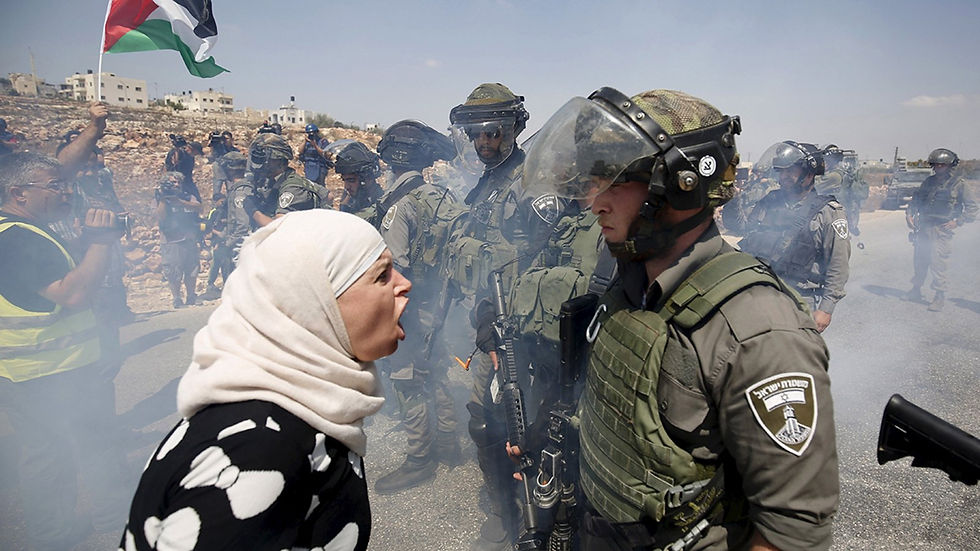
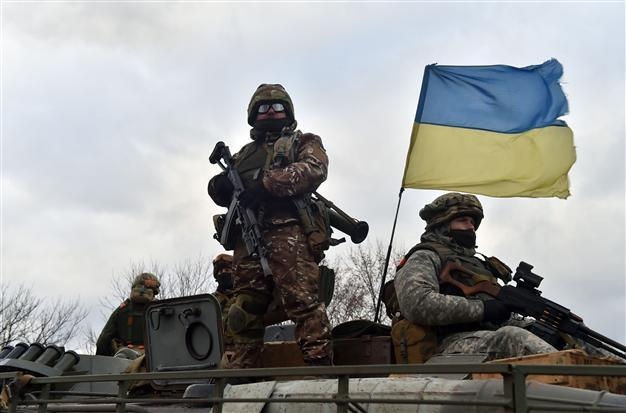
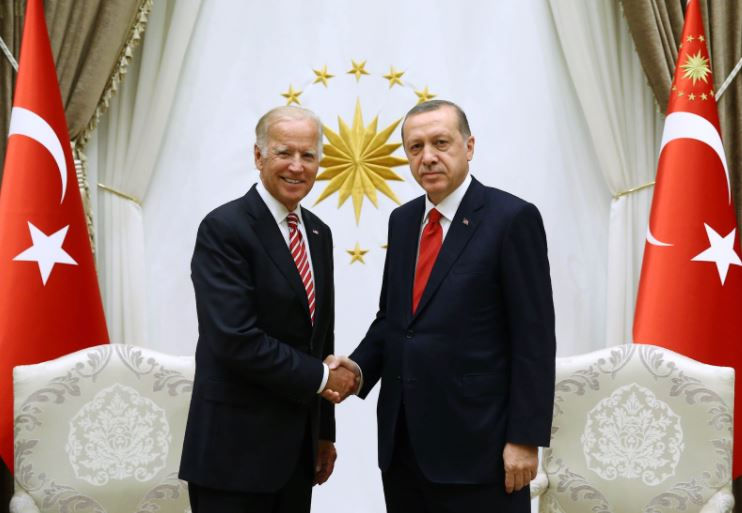
Comments